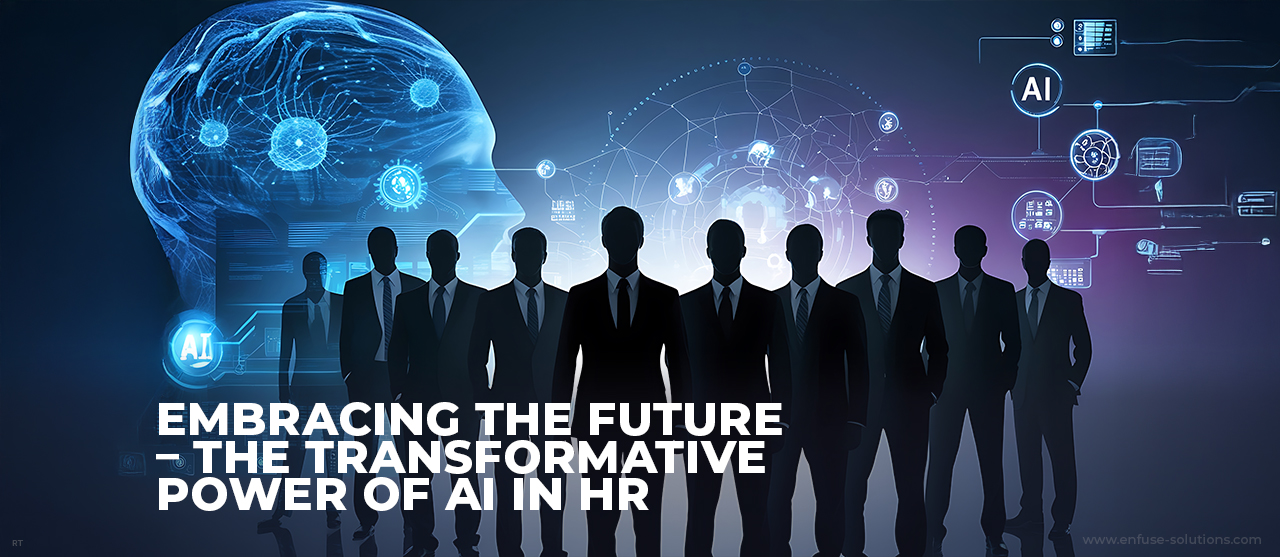
In today’s fast-paced business world, innovation has become essential and is no longer a choice. Among the cutting-edge technologies transforming industries, artificial intelligence (AI) stands out as a game-changer for Human Resources (HR). By automating tasks, refining decision-making, and fostering better employee engagement, AI equips organizations to thrive in an ever-evolving environment.
A report by Grand View Research states that the global AI in HR market was valued at $3.25 billion in 2023 and is projected to grow at a CAGR of 24.8% from 2024 to 2030. This rapid growth is driven by the increased adoption of AI-powered solutions to enhance employee management, reduce operational costs, and boost efficiency.
This blog delves into the transformative applications of AI in HR and its impact on people management.
The Shift Toward AI In HR
HR departments globally are adopting AI at an unprecedented pace—and for good reason. A 2024 survey by Gartner reveals that 34% of HR leaders consider AI tools essential for enhancing operational efficiency and employee engagement. HR professionals frequently encounter formidable obstacles like:
- Reviewing thousands of resumes.
- Ensuring seamless onboarding for new hires.
- Assuring high levels of productivity and engagement among employees.
AI transcends being just a time-saving tool; it enhances decision-making, minimizes bias, and improves employee satisfaction, creating a more agile and inclusive workplace.
Key Benefits Of AI In HR
1. Enhanced Decision-Making
AI processes large datasets to uncover trends and insights, enabling improved recruitment, retention, and talent development strategies. According to an IBM report, companies using AI for decision-making report a 30% decrease in recruitment costs.
2. Improved Employee Experience
AI delivers personalized onboarding and career development plans, creating a more engaging and productive work environment. Research by Forbes highlights that 83% of employees appreciate personalized learning and development experiences, with AI facilitating tailored solutions.
3. Reduced Bias
Well-designed AI systems eliminate unconscious bias in hiring and performance evaluations, fostering a diverse and inclusive workplace. A recent SHRM study notes that AI-driven hiring systems improve diversity metrics by as much as 29%.
4. Predictive Analytics
AI anticipates challenges like high attrition rates or skills shortages, empowering HR teams to act proactively. Predictive analytics in HR is expected to grow at a CAGR of 14.8% over the next five years, according to Grand View Research.
How AI Is Transforming HR
1. Recruitment And Talent Acquisition
AI streamlines the recruitment process:
- Resume Screening: Analyze resumes rapidly to identify top candidates. A report by Siemens highlights that AI reduces screening time by 60%, enabling HR teams to focus on engaging with top candidates.
- Chatbots: Manage candidate queries, schedule interviews, and provide updates. Chatbot adoption has grown by 92% between 2019 and 2020 alone, according to recent statistics.
- Predictive Hiring: Use historical data to predict candidate success. Companies leveraging predictive hiring report a 25% increase in employee retention, according to the current survey.
2. Employee Onboarding
AI simplifies and personalizes onboarding by:
- Creating customized onboarding programs that are specific to positions and backgrounds. Organizations using AI-enhanced onboarding experience 82% higher new-hire retention rates, according to Brandon Hall Group.
- Leveraging virtual assistants to guide employees through administrative tasks.
- Monitoring onboarding progress for timely feedback.
3. Performance Management
Continuous performance management is enhanced by AI through:
- Real-Time Feedback: Deliver actionable insights promptly.
- Goal Setting: Define measurable, personalized goals.
- Leadership Identification: Recognize high-potential employees through data-driven analysis.
4. Learning And Development
AI revolutionizes upskilling by:
- Conducting skill gap analyses. A 2023 McKinsey report notes that 87% of companies are facing a skill gap, therefore leveraging AI analysis to see faster skill alignment with business goals.
- Creating personalized learning paths.
- Offering adaptive learning platforms for real-time progress adjustments.
5. Employee Engagement And Retention
AI boosts engagement and retention through:
- Sentiment Analysis: Detect dissatisfaction early. According to Gallup, organizations that measure and analyze employee sentiment can experience a 21% decrease in turnover.
- Predictive Attrition Models: Determine which workers are at risk of quitting. Predictive analytics reduce attrition by 18% on average, as highlighted by Aim Research.
- Customized Benefits: Tailor benefits to employees’ needs for higher satisfaction.
6. HR Analytics And Reporting
AI-driven analytics empower strategic decision-making by:
- Forecasting workforce needs.
- Tracking diversity and inclusion metrics.
- Measuring ROI on HR initiatives.
Balancing AI With Human Empathy
Even if AI increases productivity, human interaction is still crucial in HR:
- Building meaningful relationships.
- Managing sensitive issues with empathy.
- Driving creativity and innovation.
Future Trends In AI-Powered HR
1. Natural Language Processing (NLP): Enhancing communication with advanced AI tools.
2. Virtual Reality (VR) And Augmented Reality (AR): Revolutionising onboarding and training experiences.
3. Blockchain Technology: Ensuring secure and transparent HR processes.
4. Ethical AI: Prioritizing unbiased and explainable AI models.
Practical Steps To Integrate AI Into HR
Are you prepared to revolutionize your HR strategy with AI? Begin with these actionable steps:
1. Start With Pilot Projects: Implement small-scale AI initiatives to test feasibility and measure outcomes.
2. Ensure High-Quality Data: Accurate insights depend on reliable data.
3. Prioritize Human-Centric Approaches: AI should supplement human interaction in HR procedures without replacing it.
4. Stay Updated On Emerging Technologies: Keep pace with advancements such as natural language processing (NLP) and predictive analytics.
5. Collaborate Across Departments: Partner with IT and data teams to align AI initiatives with organizational goals.
6. Regularly Assess And Optimize AI Solutions: Continuously evaluate AI tools to ensure they meet your evolving HR needs.
By starting small, focusing on data quality, and integrating AI with a human-first mindset, your organization can unlock the full potential of AI in HR.
Conclusion: Embracing AI For The Future Of HR
AI is redefining HR practices, enabling organizations to make data-driven decisions and foster meaningful employee experiences. By combining AI’s analytical power with human empathy, companies can create workplaces that inspire innovation and growth.






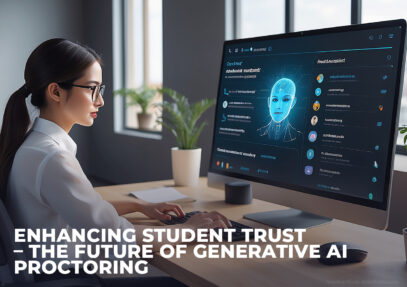
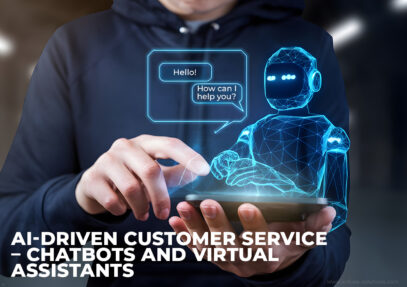
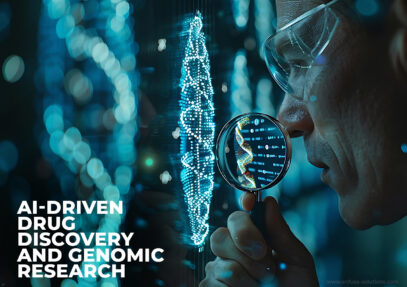
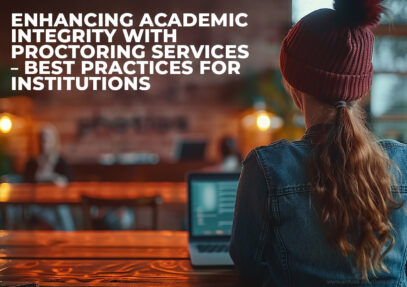

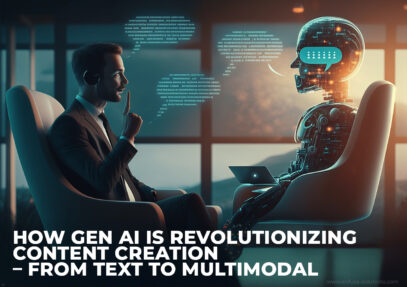

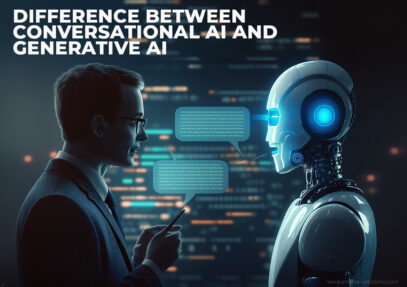

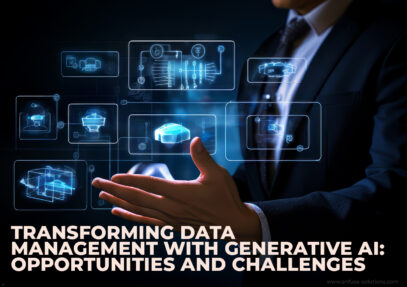

Comment